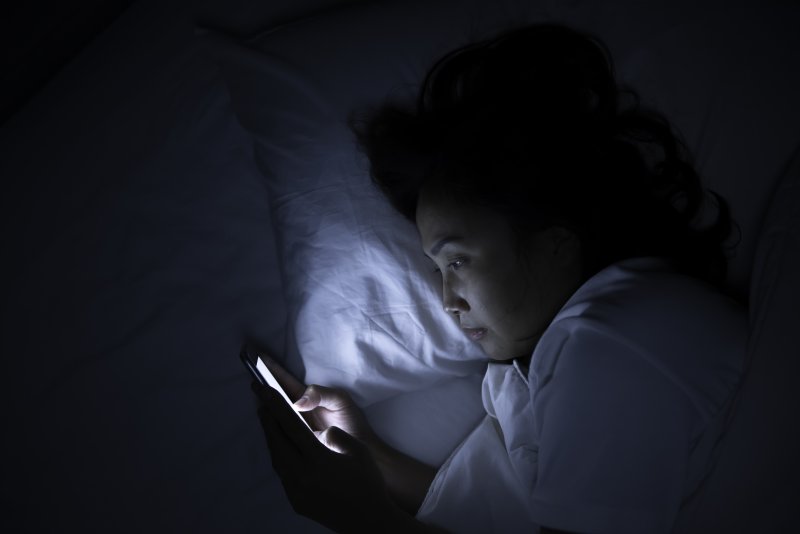
You spend about half an hour looking at your phone before bed every night, and then in the morning you’re feeling tired even though you gave yourself plenty of time to sleep. Could these two things be related? As odd as it might seem, spending too much time on your phone or any other kind of electronic device could end up decreasing the quality of your sleep – and if you already have a disorder like sleep apnea, the problem could grow even worse. Read on to learn why turning your devices off before bed could be the key to enjoying a more well-rested lifestyle.
How Electronic Devices Affect Sleep
Smartphones, laptops, television screens, and tablets all emit blue light when powered on. Blue light is a type of light that is also emitted by the sun. When your body is exposed to blue light, it suppresses the production of the sleep hormone melatonin. In other words, blue light is nature’s way of letting your brain know that it’s time to wake up.
Because electronic screens can expose you to blue light during the evening, they can end up interfering with the body’s natural sleep-wake cycle. Melatonin production will be interrupted prematurely, making it harder to fall asleep and stay asleep. This is especially problematic for anyone with a sleep disorder that is already having trouble getting enough rest.
What You Can Do About Blue Light
To give your body a chance to properly wind down, you should turn off all electronic devices at least one hour before you fall asleep. Reading a book or magazine, listening to music, or engaging in simple activities like light cleaning or baking are better ways to spend your time before bed. You may also want to switch to low lighting all throughout your house; the last thing you want is for it to be so bright indoors that you accidentally trick your brain into thinking it’s daytime.
Of course, there will be the occasional evening where you won’t be able to avoid looking at an electronic screen. To that end, you might think about getting orange-tinted glasses that can cancel out blue light. They work best when worn for several hours before bed. That said, avoiding blue light as much as possible will always be the ideal option for your oral health.
Treating Sleep Disorders
If you have been diagnosed with a sleep disorder, there are other steps you need to take to improve your sleep beyond just reducing blue light exposure. Talk to your dentist about getting an oral appliance that keeps the airway open while you sleep; this allows you to breathe comfortably and easily throughout the night without CPAP.
Good habits combined with proper sleep apnea treatment go a long way towards helping you find relief from your sleep disorder and enjoy a healthier lifestyle along with restful nights.
About the Author
Dr. Pamela West’s dental career spans over three full decades. She has spent over 20 years at her current Las Vegas location, iSleep Solutions, helping patients improve the quality of their sleep. The oral appliances that she offers serve as a comfortable, convenient alternative to CPAP therapy. If you are concerned about the quality of your sleep lately, you can schedule an appointment with Dr. West by visiting her website or calling (702) 844-6226.
